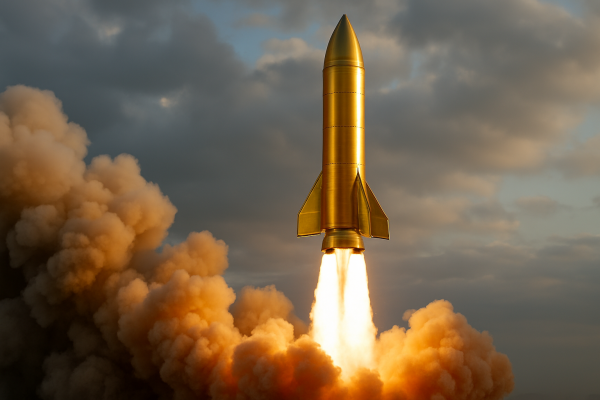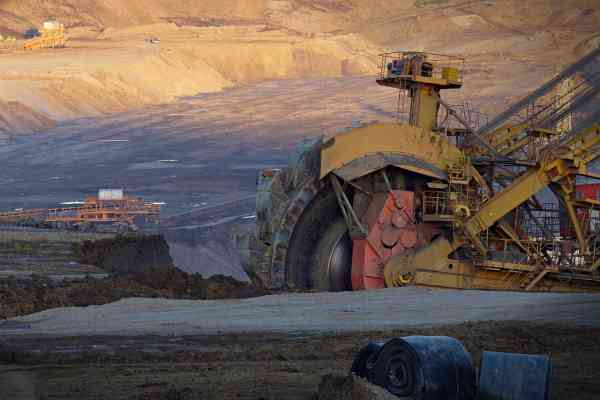June 5th, 2023 | 07:30 CEST
Headwinds for e-car manufacturers - What matters now: BYD, Volkswagen, First Phosphate
With strong acceleration, a connected cockpit and lots of rear-seat amenities - these are the features that score points for e-cars. However, investors are taking a closer look. An article in Handelsblatt reveals that some carmakers are not faring well in the favour of sustainably-minded investors. We look at why that is and why shareholders should consider it - an analysis of Environmental, Social, and Governance (ESG) in the automotive industry.
time to read: 3 minutes
|
Author:
Nico Popp
ISIN:
BYD CO. LTD H YC 1 | CNE100000296 , VOLKSWAGEN AG VZO O.N. | DE0007664039 , FIRST PHOSPHATE CORP | CA33611D1033
Table of contents:

"[...] Nickel, therefore, benefits twice: firstly from its growing importance within batteries and secondly from the generally growing demand for such storage. [...]" Terry Lynch, CEO, Power Nickel
Author
Nico Popp
At home in Southern Germany, the passionate stock exchange expert has been accompanying the capital markets for about twenty years. With a soft spot for smaller companies, he is constantly on the lookout for exciting investment stories.
Tag cloud
Shares cloud
Volkswagen hardly plays a role for many professional investors
"The share is not an issue for us at all". With this quote, Handelsblatt opens an article about Volkswagen, and in it addresses managers of sustainability funds who have turned their backs on the Company or have never been invested in Volkswagen. The newspaper refers to a study by Morningstar, according to which the VW share is not included in 14 ESG ETFs and another 3 ETFs have limited the share of VW in their fund or at least plan to reduce the position. Morningstar could not find out any details about another 3 ETFs. The investigation comes at an inopportune time for Volkswagen: on June 21, the Company plans to present its strategy for the future at a capital market day.
Volkswagen has been unpopular among investors with a clear ESG focus for years. Even before the diesel scandal, factors such as lack of transparency and other issues led to deductions in the "Governance" category. Today, Volkswagen's business relations with China and manufacturing in the Middle Kingdom are causing downgrades in the ESG metrics of fund providers. Handelsblatt cites Union Investment and Deka as examples. While Volkswagen aims to be CO2-neutral by 2050 at the latest, that alone may not be sufficient to become ESG-compliant across all levels.
BYD: China penalty could be expensive
BYD is also likely to have a bad hand in the sustainability considerations of many investors. The Company mainly manufactures in China. In addition, many raw materials that BYD uses indirectly also come from China. The extraction conditions there are considered to be in great need of improvement. In addition, electric cars from China could also have disadvantages in terms of production. Recently, plans were made according to which France could make the promotion of new cars dependent on their sustainability. The planned law is designed in such a way that it will primarily affect manufacturers who produce outside Europe and use non-sustainable materials.
First Phosphate: New battery technology scores with sustainability
If France's plans catch on, car manufacturers could soon be forced to implement their ESG visions even faster. The easiest way to do this is to purchase certain primary products from ESG-compliant sources. In the case of e-cars, the battery is considered very resource-intensive. Lithium from South America and cobalt from Africa are a no-go in the eyes of many climate-conscious customers and investors anyway - good reasons, then, to look around for new sources. The Canadian company First Phosphate is betting on the trend towards lithium iron phosphate batteries (LiFePO). These batteries rely on a cathode made of lithium iron phosphate and an anode made of graphite. The technology allows more charging cycles without significant wear, does not require the discredited cobalt and is not suspected of "exploding" due to differences in the chemical reaction. Leading car manufacturers have long been relying on the technology, and analysts expect rapid growth by 2030. First Phosphate wants to extract and refine high-purity phosphate for batteries in Canada in an ESG-compliant manner and thus score points in the market.
"First Phosphate plans to mine phosphate from anorthosites. Phosphate deposits from igneous rocks have the advantage of not containing radioactive elements, so the process after phosphate extraction is straightforward and does not lead to contamination. In our process, there will be no large tailings piles as there are when phosphate is extracted from sedimentary rock. Consequently, we will be able to operate a high quality and sustainable phosphate mining practice and thus have all the ESG prerequisites to attract the automotive industry as a customer," First Phosphate CEO John Passalacqua said in an interview months ago. Scheduled for 2023 is the completion of an economic evaluation study on the Lasc-à-l'Orignal project, results from past drilling and new exploration. First Phosphate has already found an industrial partner in the Belgian company Prayon and plans to cover larger parts of the value creation around LiFePo batteries.
After a successful IPO this year, the share corrected but is finding a bottom. Given the ever-increasing pressure on carmakers to make their business sustainable, ESG-compliant sources of raw materials have a future. While projects must be profitable first and foremost, First Phosphate's project makes a good impression. Investors can expect more details from the upcoming PEA study.
Conflict of interest
Pursuant to §85 of the German Securities Trading Act (WpHG), we point out that Apaton Finance GmbH as well as partners, authors or employees of Apaton Finance GmbH (hereinafter referred to as "Relevant Persons") may hold shares or other financial instruments of the aforementioned companies in the future or may bet on rising or falling prices and thus a conflict of interest may arise in the future. The Relevant Persons reserve the right to buy or sell shares or other financial instruments of the Company at any time (hereinafter each a "Transaction"). Transactions may, under certain circumstances, influence the respective price of the shares or other financial instruments of the Company.
In addition, Apaton Finance GmbH is active in the context of the preparation and publication of the reporting in paid contractual relationships.
For this reason, there is a concrete conflict of interest.
The above information on existing conflicts of interest applies to all types and forms of publication used by Apaton Finance GmbH for publications on companies.
Risk notice
Apaton Finance GmbH offers editors, agencies and companies the opportunity to publish commentaries, interviews, summaries, news and the like on news.financial. These contents are exclusively for the information of the readers and do not represent any call to action or recommendations, neither explicitly nor implicitly they are to be understood as an assurance of possible price developments. The contents do not replace individual expert investment advice and do not constitute an offer to sell the discussed share(s) or other financial instruments, nor an invitation to buy or sell such.
The content is expressly not a financial analysis, but a journalistic or advertising text. Readers or users who make investment decisions or carry out transactions on the basis of the information provided here do so entirely at their own risk. No contractual relationship is established between Apaton Finance GmbH and its readers or the users of its offers, as our information only refers to the company and not to the investment decision of the reader or user.
The acquisition of financial instruments involves high risks, which can lead to the total loss of the invested capital. The information published by Apaton Finance GmbH and its authors is based on careful research. Nevertheless, no liability is assumed for financial losses or a content-related guarantee for the topicality, correctness, appropriateness and completeness of the content provided here. Please also note our Terms of use.




